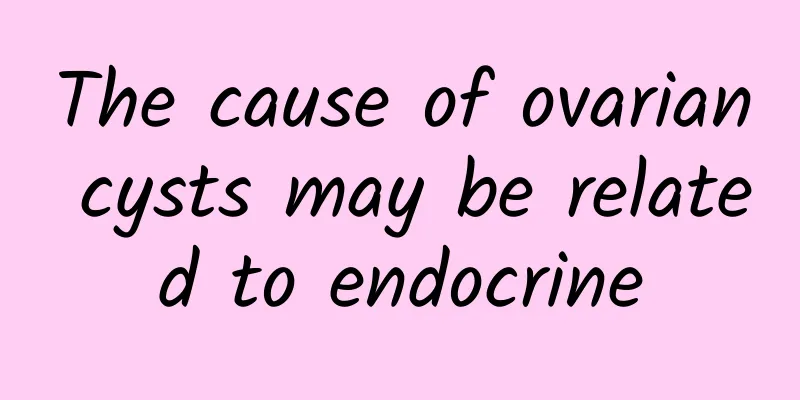What are the causes of irregular menstruation?

|
Gynecological diseases have always been something that female friends are very afraid of. Many female friends think that only women who have had sexual life will suffer from gynecological diseases. In fact, this understanding is wrong. There are many causes of gynecological diseases. Among them, unhygienic living habits are also a major cause of gynecological diseases. Among gynecological diseases, irregular menstruation is a very common disease. In real life, female friends are very likely to suffer from menstrual irregularities, especially those with weak constitutions. They need to be more proactive in preventing menstrual irregularities, which requires some understanding of the causes of menstrual irregularities. Ovarian problems: Menstrual irregularities in women of childbearing age are usually caused by poor ovarian corpus luteum function, which often manifests as a period, but a shortened period, or heavy menstrual bleeding. This is a common cause of menstrual irregularities. Caused by organic diseases or drugs: The causes of irregular menstruation include inflammation, tumors, developmental abnormalities, malnutrition of local reproductive organs, intracranial diseases, other endocrine disorders, such as thyroid and adrenal cortex dysfunction, diabetes, Sheehan's disease, liver diseases, blood diseases, etc. People who use drugs for the treatment of mental illness, endocrine preparations or intrauterine contraceptive devices may have irregular menstruation. Some professions, such as long-distance runners, are prone to amenorrhea. In addition, some abnormal bleeding during pregnancy is often mistaken for menstrual irregularities. Caused by neuroendocrine dysfunction: mainly due to unstable or defective function of the hypothalamus-pituitary-ovarian axis, i.e. menstrual disease, which is also a common cause of irregular menstruation Obesity: Obesity is caused by consuming more calories than the body consumes. Long-term obesity in women will lead to endocrine and metabolic disorders, causing menstrual disorders, oligomenorrhea, amenorrhea, and functional uterine bleeding, which are also causes of menstrual disorders. In clinical medicine, it is often found that the histological changes in the ovaries of obese patients are very similar to polycystic ovary syndrome. When the weight is reduced, menstruation resumes and ovarian changes disappear. Contemporary medicine has confirmed that obesity can cause menstrual irregularities. |
Recommend
Vulvar skin discoloration alert female vulvar leukoplakia
Female vulvar leukoplakia is a stubborn and diffi...
What to do with adenomyosis and fallopian tube adhesions
Due to the influence of pathogenic factors, some ...
What are the consequences of uterine fluid accumulation?
What are the hazards of uterine effusion? This is...
Five common factors can cause irregular menstruation
Those few days of each month are always the days ...
What medicine should I take for abdominal pain caused by threatened abortion?
Threatened abortion makes expectant mothers vulne...
Is there any relationship between cervical erosion and IUD insertion?
Cervical erosion is the original name, and now it...
Stop calcium! Taking more than 500 mg of calcium tablets a day increases the risk of heart disease
Many elderly people have osteoporosis problems to...
Can menstrual disorders recover on their own?
Can menstrual disorders recover on their own? 1. ...
Drink carrot and apple juice for breakfast to boost immunity and lose weight
Eating a good breakfast can not only make you ful...
Difference between pelvic inflammatory disease and adnexitis
Pelvic inflammatory disease and adnexitis are bot...
Lazy man's weight loss technique! Sleep weight loss method to supplement the right amino acids and lose weight
Often stay up late and eat midnight snacks to rel...
Three major hazards of female pelvic inflammatory disease
Pelvic inflammatory disease is divided into acute...
The principle of TCM treatment of adnexitis is to treat based on syndrome differentiation
Traditional Chinese medicine treats adnexitis by ...
Examination items needed for uterine effusion
Gynecologists say that early detection and treatm...
How long does it take for hcg to return to normal after a miscarriage? Let's find out together
HCG is a female hormone produced by women during ...









